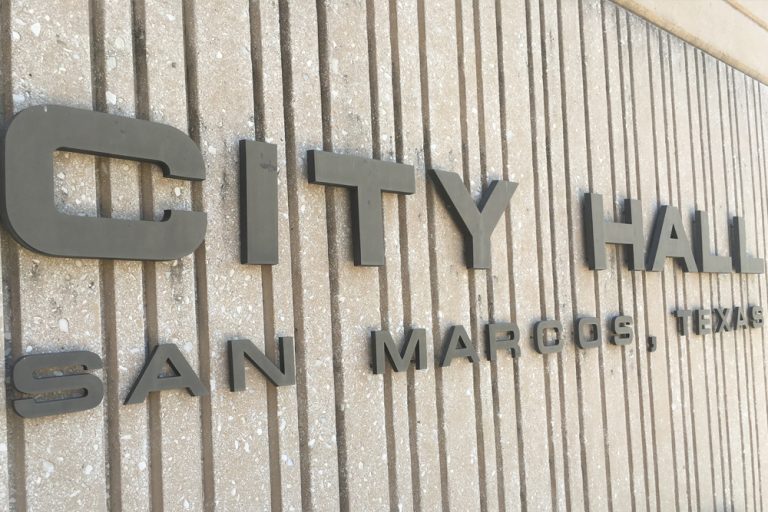

Staff Reports
On Tuesday, the San Marcos City Council received a presentation regarding a Law Enforcement Assisted Diversion Program and provided direction to staff.
Brendan Cox, Director of Policing Strategies at the LEAD National Support Bureau, provided the council with an in-depth presentation on LEAD Policing strategies.
According to the agenda, Cox has 23 years of experience in law enforcement and criminal justice reform. In January 2017, he retired from the Albany Police Department in New York after 23 years.
During his presentation, Cox discussed the causes behind a lot of the crimes law enforcement sees every day and the role mental health plays in local crime rates.
According to the LEAD National Support Bureau’s data, 46.6 million adults have some form of mental illness, and there are 18.7 million adults with substance use disorder.
Cox said law enforcement sees people every day who have some sort of mental illness; while some of have been diagnosed, others have never been to a doctor, and many have fallen into drugs as a way to deal with the disorder.
In 2017, 70,237 people died from an overdose. Over 2.1 million people are incarcerated in the U.S.
“Our traditional response has been punitive; ‘if we arrest people, we will make things,’” Cox said. “I became a police officer in 1994 and that’s what I was told. And that’s what I believed, most of us did. However, we can pretty much prove that arresting people did not work.”
Cox said the United States has five percent of the world’s population but has twenty-five percent of the world’s incarcerated population.
The LEAD program is comprised of six core components, which is expanded to address a city’s unique issues:
“This about changing a culture,” Cox said. “This is not just about diverting a couple of arrests. This is about getting to the point of recognizing that there is a better way to provide public safety. And because it’s a collaborative approach; it’s not just one agency.”
San Marcos Assistant Chief of Police, Brandon Winkenwerder, attended Tuesday’s work session and addressed council to talk about the current mental health program employed by the San Marcos Police Department.
According to Winkenwerder, the department already has the model for LEAD and its subprograms.
Winkenwerder said the department received a grant in 2011 or 2012 to develop a mental health diversion program, which allows officers to keep people out of the criminal justice system and get them the help they need.
Winkenwerder also said the last time the numbers were run; the department was diverting 700 cases a year under the mental health program.
“We added a third mental health officer a few years ago,” Winkenwerder said. “When there is a mental health related call, they are jumping on that call right away and trying to keep our patrol officers on the street…we did train our entire department in the mental health peace officers 40-hour course, so everyone is trained to recognize those things, to go this person needs this program or this service.”
Winkenwerder said he thinks the program has benefited the department greatly; patrol officers are always asking if the mental health officers are on duty to help get people the help they need.
“LEAD is not going to solve everybody’s problem,” Cox said. “So, it’s great to have other models going in different places.”
The San Marcos City Council received a presentation on the Sidewalk Maintenance and Gap Infill…
The San Marcos River Rollers have skated through obstacles after taking a two-year break during…
San Marcos Corridor News has been reporting on the incredible communities in the Hays County…
Visitors won't be able to swim in the crystal clear waters of the Jacobs Well Natural…
Looking to adopt or foster animals from the local shelter? Here are the San Marcos…
The Lone Star State leads the nation in labor-related accidents and especially workplace deaths and…
This website uses cookies.